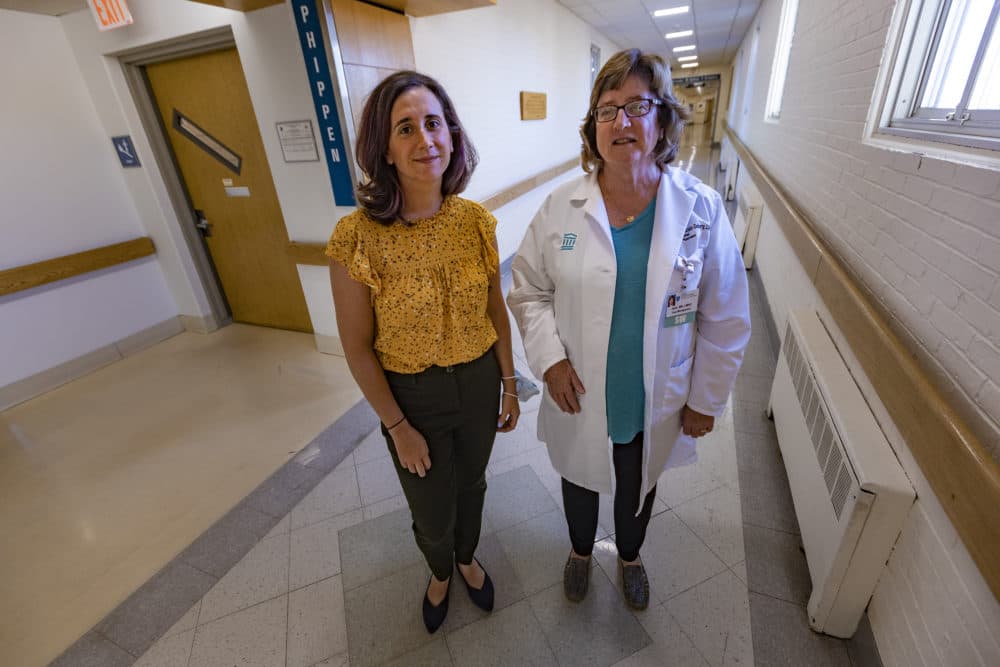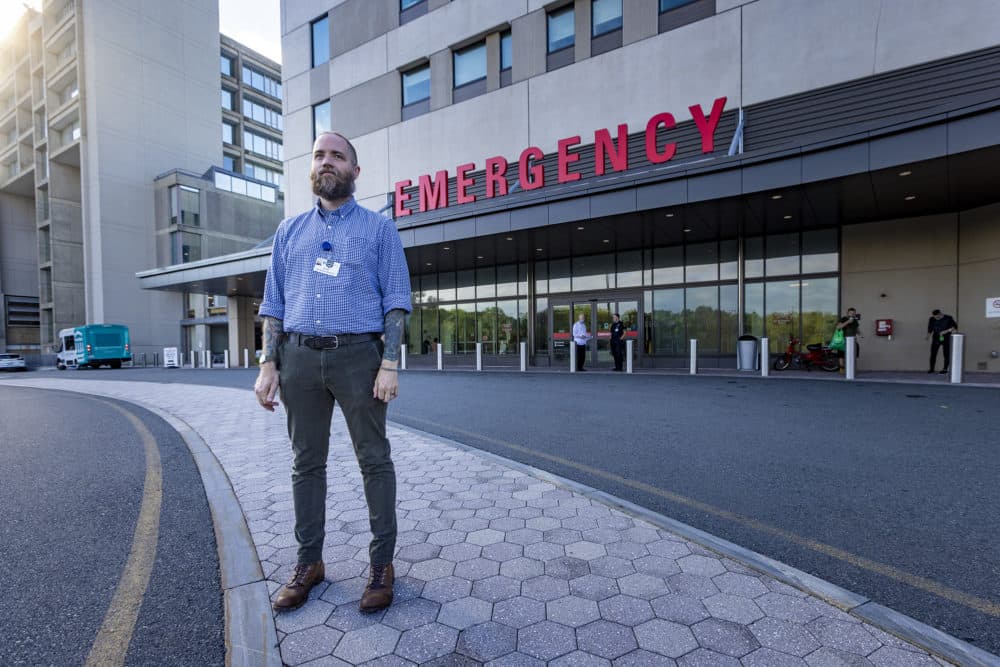In late December of 2021, Marie observed she was having more and more difficulty breathing. On the early morning of Dec. 28, she awakened gasping for air. Marie called 911.
” I was so frightened,” stated Marie, her voice increasing, her hand clutching her chest at the memory. The voice in the 63-year-old’s head stated, “You’re going to pass away.”
At Salem Hospital, the staff dealt with Marie’s COPD, a persistent condition that consists of emphysema and persistent bronchitis. A physician inspected in the next day and informed Marie her oxygen levels looked great.
We’re not consisting of Marie’s surname due to the fact that she, like one in 9 hospitalized patients, has a historyof addiction to drugs or alcohol Divulging that can make it difficult to discover real estate, a task and even medical care in hospitals where patients with an addiction might be avoided. But talking to the medical professional that early morning, Marie felt she didn’t have an option.
” He stated I might be launched,” Marie remembered. “And I stated, ‘I got to inform you something. I’m a heroin addict, and I’m, like, beginning to be in heavywithdrawal I can’t actually move, please do not make me go.’ “
At many hospitals in Massachusetts and throughout the nation, Marie, while in the pain of withdrawal, would likely have been released. A hospital may send out Marie on her method with recommendations to a detox programs or positions she might call for help.
Hospitals generally utilize heart, lung, kidney and other specialists. But if your illness is an addiction or a condition associated to drug or alcohol use, there are couple of hospitals where patients can see anybody who specializes in addiction medicine– even as overdose deaths reach record highs And research study reveals the effect: an increased danger of deadly overdose within days or weeks after a hospital go to like Marie’s.
” They’re left on their own to figure it out, which regrettably normally implies resuming use, due to the fact that that’s the only method to feel much better,” stated Liz Tadie, a nurse specialist accredited in addiction care.
Tadie used a federal grant to launch a brand-new approach at Salem Hospital, a member of the Mass General Brigham hospital network. Tadie began what’s referred to as an addiction speak with service. In this case that group consisted of Tadie, 3 recovery coaches and a patient case supervisor.
So that day, when Marie stated, “Please do not make me go,” her medical professional didn’t inform Marie she had to leave. He called Tadie. She attempted methadone, which didn’t help Marie, then changed to buprenorphine, a medication that’s assisting Marie handle heraddiction to opioids Marie states she turned to Tadie for lots of assistance and peace of mind also.
” Like, that I wasn’t going to be left alone,” Marie stated, “like that I wasn’t going to have to call a dealership ever once again, that I might erase the number. I desire to return to my life. I simply feel grateful.”

Tadie used success stories like Marie’s to help unwind years of false information, discrimination and lack of knowledge about patients with an addiction and their treatment options. Part of the issue, stated Tadie, is that medical professionals, nurses and other clinicians get extremely little training in the physiology, medications and other elementsof treatment And what they do get is often unhelpful.
” A lot of the truths are dated,” Tadie stated. “And people are training to use stigmatizing language– words like addict and substance abuse.”
Tadie carefully remedied medical professionals, for example, who believed they weren’t enabled to start patients on methadone in the hospital.
” Often I would advise a dosage and someone would provide pushback,” Tadie stated. But “we got to understand the hospital medical professionals and they, in time, resembled, “OK, we can trust you. We’ll follow your suggestions.”
Other members of Tadie’s group have likewise battled with discovering their location in the hospital hierarchy. David Cavern, one of the recovery coaches at Salem Hospital, is often the very first individual to speak to somebody who comes to the emergency spacein withdrawal He attempts to help medical professionals and nurses comprehend what the individual is going through and help browse their care.
” I’m most likely punching above my weight whenever I attempt to talk to a clinician or medical professional,” stated Cavern. “They do not see letters after my name. It can be kind of hard.”

But identifying addiction as a specialized and hiring people with training in this disease is moving the culture of Salem Hospital, according to Jean Monahan-Doherty, a social employee who’s referred patients to Tadie.
” There was lastly some acknowledgment throughout the whole organization that this was a complex medical disease that required the attention of a professional,” Monahan-Doherty stated. “People are passing away. This is a terminal illness unless it’s dealt with.”
This approach to treating addiction is winning over some Salem Hospital workers, but not all.
” Some of the medical staff continue to see it as an ethical problem,” Monahan-Doherty stated. “Often you hear an mindset of, ‘why are you putting all this effort into this patient? They’re not going to improve.’ Well, how do we understand? If a patient comes in with diabetes, we do not state, ‘OK, they have actually been taught when and it didn’t work. So we’re not going to provide them support once again.’ “
Even with some staff appointments, Tadie and her group have been overwhelmed many days with recommendations. That’s the pattern at 5 Massachusetts hospitals that included addiction specialists in the previous 3 years, moneyed through the federal Recovery Communities research study
” What begins as a drip, ends up being an active stream and at times, even a flood,” stated Dr. Jeffrey Samet, leader of the Massachusetts part of this national test of tools to minimize overdose deaths. Samet, who practices primary care at Boston Medical Center, states including addiction specialists in hospitals is an essential piece of the service.
” You truly do provide much better care for patients and you make the care environment one that people are more pleased working in,” Samet stated.
Dr. Todd Kerensky, president of the Massachusetts Society of Addiction Medicine, sees patients who weep when they discover he specializes in addiction and desires to treat their disease, not pity them.
” It’s gut-wrenching to understand there are a lot of organizations that do not have this service,” stated Kerensky. It’s not clear how many hospitals in Massachusetts have addiction professionals on staff, but Kerensky states it’s a “unique minority.”
There are numerous possible factors. It’s a brand-new field, so discovering accredited staff might be a difficulty. Some hospital leaders state they’re anxious about losing cashon addiction treatment And others report not desiring to start treatment, due to the fact that they aren’t sure where to send out patients for outpatient or residential care after they are released from thehospital Salem Hospital began what’s referred to as a bridge center where patients shift for outpatient care.
But Dr. Honora Englander, a national leader in addiction specialized programs, states hospitals that do not have an addiction specialized group requirement to begin one.
” People with substance use disorder are coming to our hospitals now,” stated Englander, who directs an addiction care group at Oregon Health and Science University. “We can’t wait. We have to do much better, and this is the time.”
Englander states the federal government might support the production of more addiction speak with services by offering financial rewards or charges for hospitals that do not accept them. The Centers for Medicare and Medicaid Provider might need that hospitals stock medications used to reward an addiction, and track what occurs to patients hospitalized with a substance use disorder as CMS currently does for other hospital readmissions.
At Salem Hospital, some staff are anxious about the future of theirprogram Liz Tadie is moving to a brand-new task at another hospital, and the federal grant has actually ended. But Salem Hospital leaders state they are devoted, and the service will continue.
